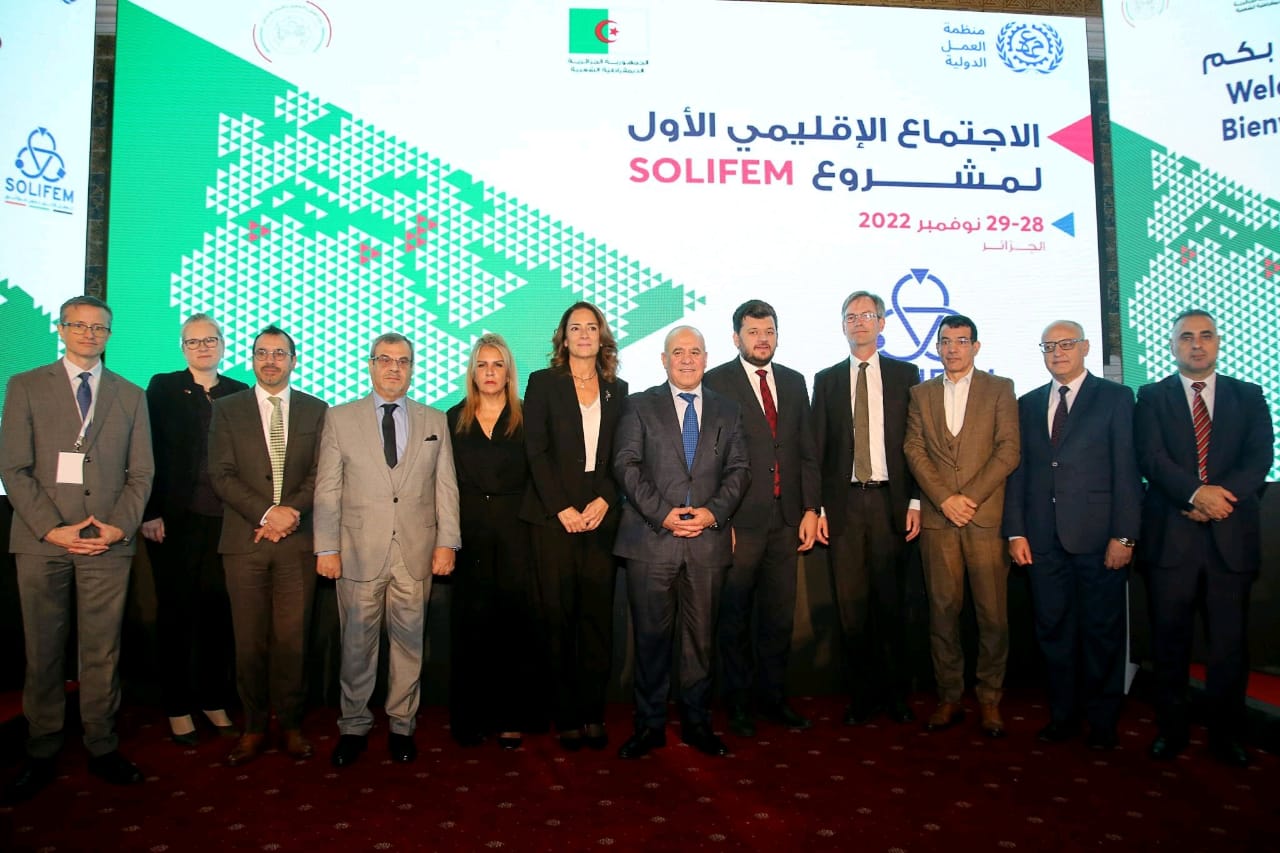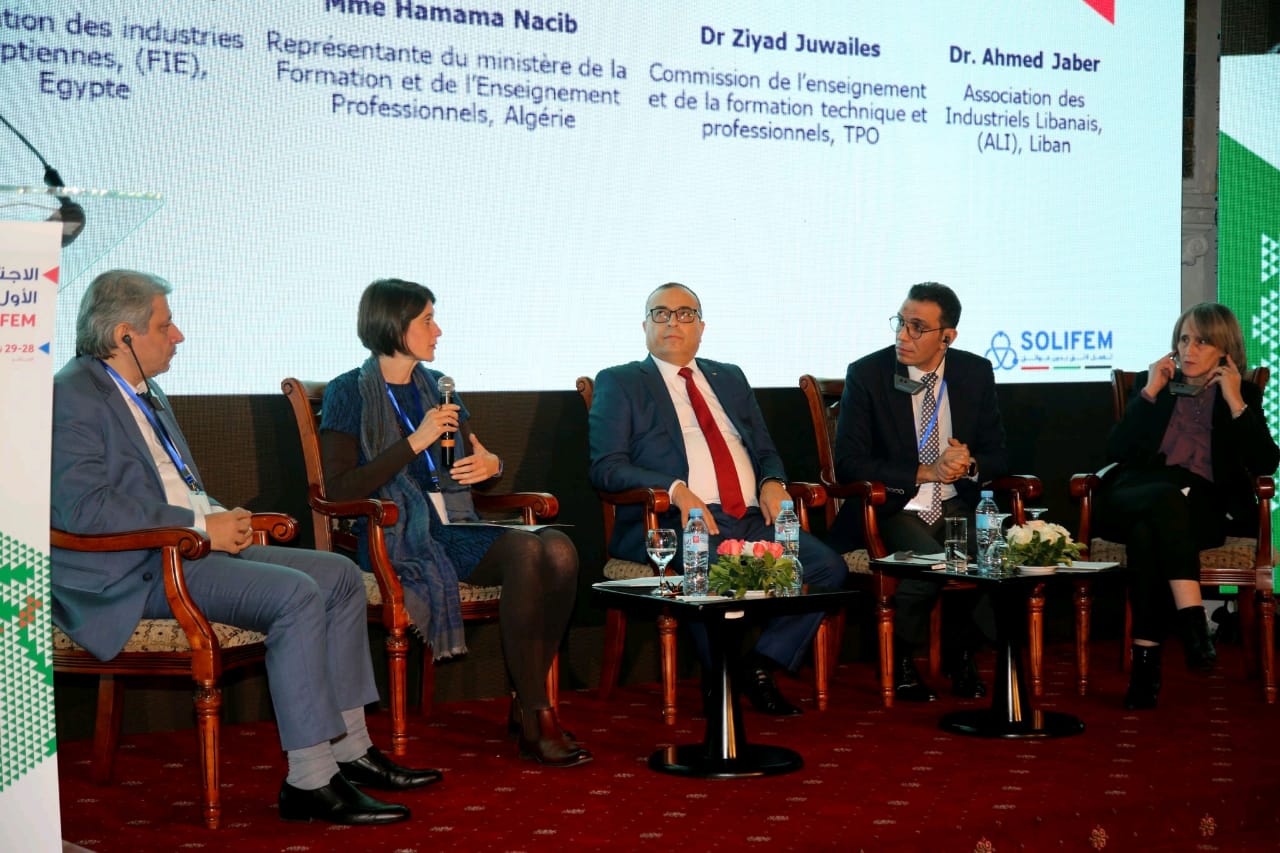News
ILO Constituents Re-affirm the Importance of Social Dialogue as a path towards formalization and Decent Work for Youth in the Middle East and North Africa region
The ILO Constituents agreed to a framework for action in the region on the 2nd day of the first regional meeting of the Social Dialogue for Formalization and Employability in the Southern Neighbourhood Region (SOLIFEM) Project, which took place in Algiers, in collaboration with the Algerian Ministry of Labour, Employment and Social Security. SOLIFEM is co-financed by the European Union and the ILO.

Constituents from Algeria, Egypt, Lebanon, and the Occupied Palestinian Territories (OPT) affirmed their commitment to ILO Recommendation 204 and Social Dialogue as the way to promote gradual formalization of the informal economy in the Southern Neighbourhood region.
For two days constituents discussed their experiences in the region and developed practical conclusions to inform policy reforms and actions that can be taken on the ground in the four countries / territories, and beyond, within the other countries of the Southern Neighbourhood, as defined by the European Union (EU).
The Algerian Government was the first of four countries to engage with the SOLIFEM project, followed by a warm welcome by His Excellency Mr. Youcef Cherfa the Minister of Labour, Employment and Social Security welcomed the delegations from Egypt, Lebanon, and the Occupied Palestinian Territories.

In a series of panel discussions facilitated by ILO experts, the International Organization of Employers (IOE) and the International Trade Union Confederation (ITUC), exchanges among ILO tripartite partners highlighted the achievements of the SOLIFEM project in the inception phase.
These include the perspectives of workers and employers on the transition to formality, the importance of strengthening skills systems to ensure they are accessible to young people and women in the informal economy, as well as best practices from Argentina, Cape Verde and Greece.
Constituents called on governments to take policy measures to preserve and protect the private sector, in order to reduce informalization of business and jobs. Employers highlighted the importance of reducing bureaucracy and strengthening supportive measures for enterprises, while workers noted the opportunity to organize young people into trade unions to ensure they are registered in social protection systems and have a pathway to Decent Work.
The delegations acknowledged that the issue of informal economy is an important shared development challenge in the region, and that the scope of the informal economy has grown with the successive and ongoing economic crises. They recommended adapted national formalization strategies in addressing informality in line with ILO Recommendation no 204 concerning the transition to the formal economy.
Participants agreed to improve communication and trust-building with youth and women workers and entrepreneurs, as a means to ensure more inclusive representation of informal economy actors in social dialogue.
They also acknowledged the importance of social dialogue as the process by which representatives of workers, employers, and governments, should develop solutions to informality, including an increase in the proportion of formal jobs, more registered enterprises, and stronger systems of social protection in the region. This includes an enabling environment for employers and workers to practice the right to organize, to collective bargaining and to participate in social dialogue for formalization.